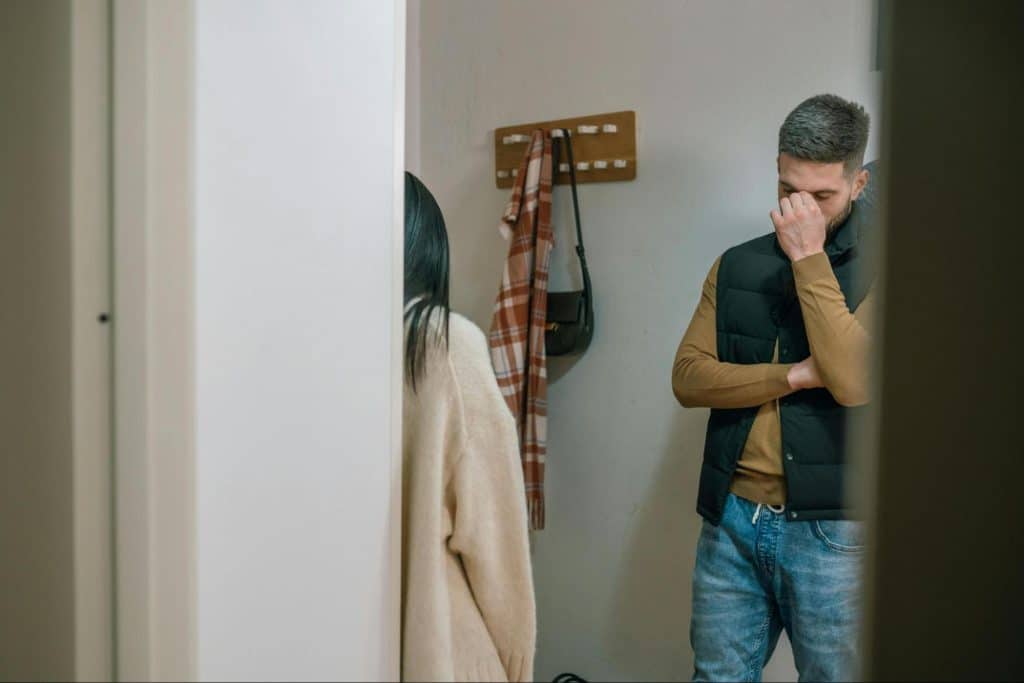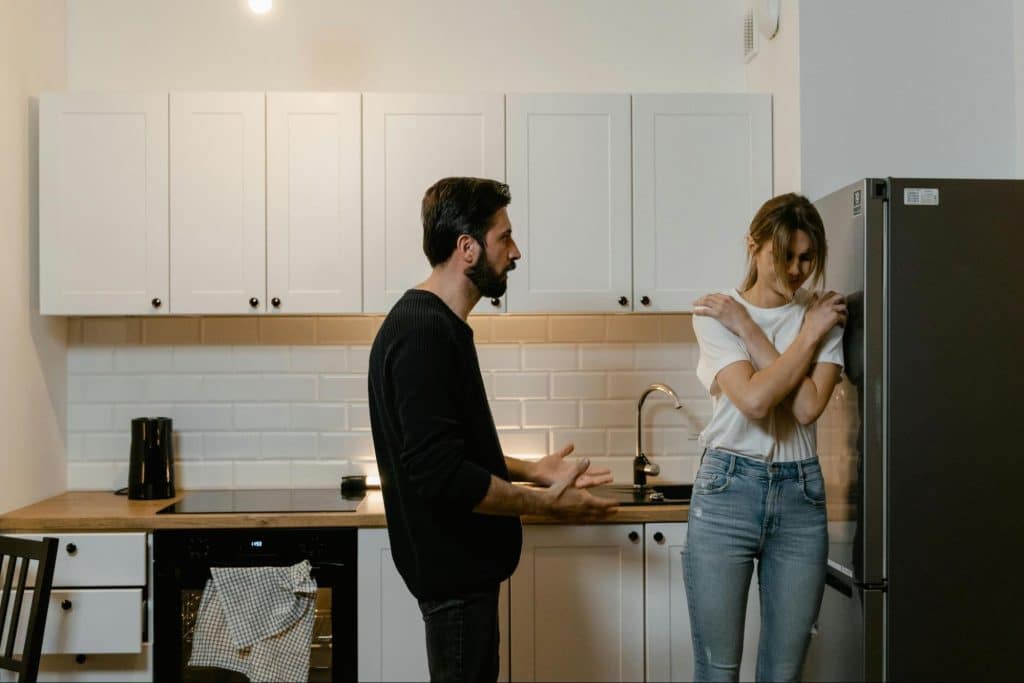
Attraction in long-term relationships doesn’t vanish in a single fight, it fades in quiet, unintentional ways. Love can survive routine, but attraction needs effort to breathe. The danger lies not in arguments but in apathy, where familiarity dulls excitement. Many couples mistake comfort for closeness, unaware that neglect hides inside their daily habits. The strongest relationships aren’t the ones without conflict, but the ones where both people keep choosing to stay interested.
When Comfort Turns Into Complacency

What starts as comfort can slowly become carelessness. You stop dressing up, stop flirting, and stop trying to impress. Familiarity makes effort feel unnecessary, but it’s effort that keeps admiration alive. Attraction thrives on intentionality, not routine. When a partner feels taken for granted, love begins to feel like a memory rather than a living energy.
Neglecting Emotional Curiosity

Long-term couples often stop asking questions they once couldn’t wait to hear answered. Curiosity fades as comfort grows, “How was your day?” turns into background noise. But emotional attraction depends on feeling seen and understood. When curiosity dies, so does connection. The moment you stop learning from each other, you start drifting apart.
Letting Intimacy Become Predictable

Physical closeness can’t survive repetition alone. When intimacy becomes a routine task instead of an emotional experience, it loses meaning. Secure connection thrives on spontaneity and exploration. When physical affection loses warmth, attraction begins to cool. The most magnetic couples are the ones who keep finding new ways to rediscover each other.
Forgetting to Flirt

Flirting isn’t just for the early days, it’s the language of play that keeps desire alive. Many couples stop teasing, complimenting, or creating that spark of anticipation. When flirtation disappears, attraction fades quietly behind politeness. Flirting reminds both partners that attraction is a choice, not a phase. It’s how love stays exciting instead of merely enduring.
Overvaluing Logic, Undervaluing Emotion

Long-term partners often handle problems like business partners, practical, rational, and emotionally detached. But attraction isn’t logical. It feeds on energy, tone, and empathy. When emotions are constantly minimized or dismissed, passion fades. Being right means little if you make your partner feel wrong for feeling.
Ignoring Your Appearance

Self-respect and attraction go hand in hand. When one partner stops taking care of themselves, it sends a quiet message of disinterest. Attraction isn’t about vanity, it’s about vitality. Effort in grooming, fitness, and health reflects pride and presence. Neglect in these areas signals emotional withdrawal long before words do.
Letting Every Conversation Turn Serious

Not every talk needs to solve a problem. Constantly discussing finances, responsibilities, or plans kills the lighthearted energy that keeps relationships fun. Attraction fades when play disappears. Secure couples know how to laugh, tease, and detach from stress together. Sometimes, what keeps love alive isn’t depth, it’s levity.
Taking Predictability Too Far

Stability is attractive; monotony is not. When every day follows the same script, excitement fades into emotional autopilot. Surprises, small or grand, remind your partner that you’re still choosing them with intention. Predictability without effort becomes emotional silence. Attraction needs novelty like oxygen.
Avoiding Physical Touch Outside of Intimacy

Touch isn’t only for the bedroom, it’s reassurance, comfort, and connection. Many couples lose affection long before they lose love because touch becomes rare or mechanical. A gentle hand, a hug, or a kiss for no reason keeps emotional closeness alive. When touch disappears, distance silently takes its place.
Overexposure Without Space

Too much time together can blur individuality. When every moment is shared, mystery disappears. Attraction thrives in the balance of connection and independence. Secure couples understand that space strengthens desire. Closeness without boundaries turns love into familiarity instead of fascination.
Letting Resentment Go Unspoken

Resentment is the slowest poison in long-term relationships. When small frustrations pile up without release, they morph into emotional distance. Avoiding difficult talks doesn’t preserve peace, it kills respect. Secure partners address tension early, with honesty and care. You can’t stay attracted to someone you quietly blame.
Replacing Passion With Routine Gratitude

Gratitude matters, but it’s not the same as passion. Saying “thank you” is polite; showing excitement is personal. Many couples forget that appreciation should feel alive, not rehearsed. Attraction withers when affection becomes mechanical. Energy, not duty, keeps connection vibrant.
Neglecting Your Individual Growth

When one partner stops evolving, admiration fades. Attraction is tied to vitality, to seeing someone alive with purpose, curiosity, and drive. Comfort can turn into emotional stagnation when personal goals disappear. Growth keeps you interesting to yourself, which naturally makes you more magnetic to your partner. Stagnation kills desire faster than distance ever could.
Letting Criticism Replace Encouragement

Constant correction turns warmth into tension. Even small, habitual criticisms wear away at connection. Attraction thrives in an environment of affirmation, not judgment. Secure couples build each other up, they don’t manage each other down. When admiration turns into nitpicking, love begins to feel conditional.
Letting Distraction Replace Presence

Modern relationships die more often from distraction than from disloyalty. Screens, routines, and divided attention make partners feel invisible. True attraction requires presence, looking, listening, noticing. When your attention drifts elsewhere, your energy follows. Attention is the currency of connection. Spend it where it matters.
Avoiding Vulnerability

Vulnerability is not weakness; it’s depth. Many partners avoid emotional openness to appear strong, but that very act weakens connection. Attraction grows when authenticity replaces performance. When both partners hide behind walls, intimacy suffocates. It’s not perfection that keeps love alive, it’s honesty.
Mistaking Stability for Fulfillment

Long-term couples sometimes confuse safety for satisfaction. Stability is comfortable, but attraction needs aliveness, a pulse of unpredictability. When you stop taking risks emotionally or romantically, the relationship plateaus. Love can survive structure, but attraction demands spontaneity. Fulfillment isn’t found in the routine; it’s found in renewal.
The Slow Death of Unseen Neglect

Attraction rarely dies loudly. It fades in the unnoticed moments, the missed compliments, the unreturned glances, the predictable routines. Love may still exist, but excitement and admiration slip away quietly. Long-term relationships don’t fail from lack of care, they fail from lack of energy. Keeping love alive means choosing effort even when it’s no longer required.






Ask Me Anything